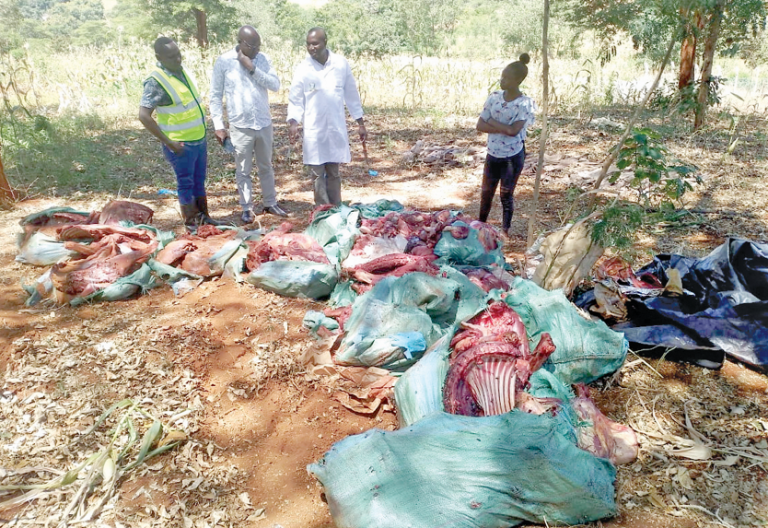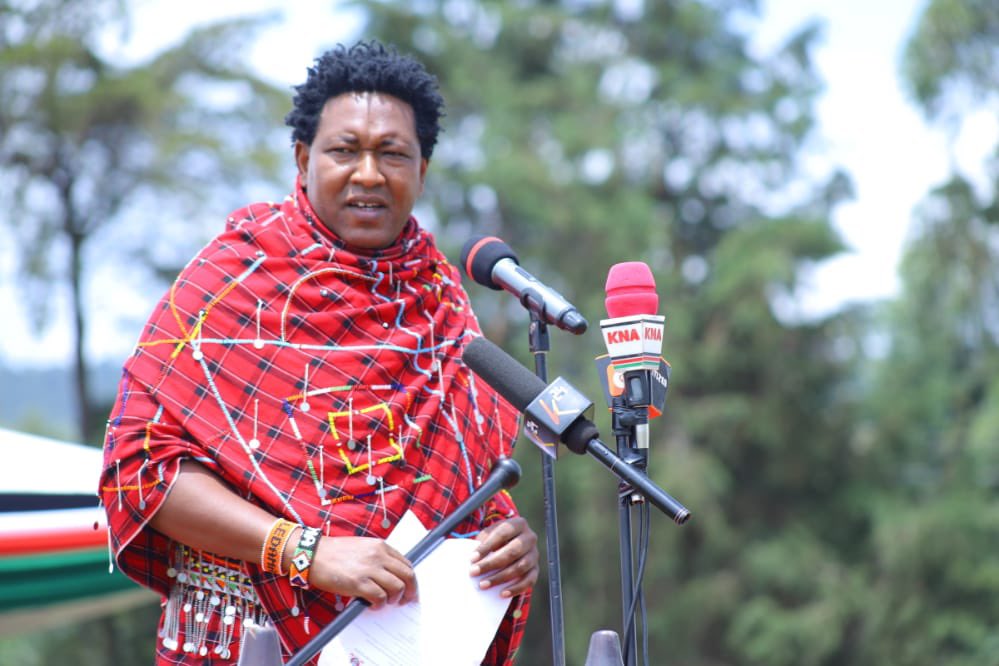Embu police seize donkey meat in illegal syndicate

Authorities in Embu county have broken yet another illegal donkey meat syndicate after seizing 15 carcasses slaughtered in Meka, Mbeere South.
The meat had been ferried by a private van, raising fresh concerns about the safety of meat sold to unsuspecting consumers in the region.
Law enforcement officers, acting on a tip-off, intercepted the vehicle at a roadblock and made a shocking discovery—chunks of donkey meat stuffed in sacks, alongside the donkey hides.
The unsettling find underscored the growing black-market trade in donkey meat, which continues to thrive despite ongoing crackdowns.
A suspect was arrested at the scene, although authorities believe he was only the small link in what must be a more massive syndicate.
The suspect is currently being interrogated as detectives work to try and unmask the masterminds behind the illegal business. Officials suspect that the racket may have deep roots in the region, with links to unscrupulous traders who disguise the donkey meat as beef.
The Embu County government has launched an intensive investigation to dismantle the syndicate, warning that traders dealing in unlicensed meat will face the full force of the law. The county’s public health department has also raised alarm over the potential health risks posed by consuming unverified meat, urging residents to be extra vigilant.
Persistent problem
Speaking on the crackdown, John Njagi, Embu West sub-county public health officer, emphasised that unsuspecting consumers could be exposed to serious diseases by eating donkey meat processed under unhygienic conditions. He urged the public to only buy meat from licenced butcheries that adhere to strict health standards.
The illegal donkey meat trade has been a persistent challenge in parts of Mbeere, with authorities continuously battling against the illicit business. Just recently, law enforcement officers impounded another consignment of donkey meat at Karuku in Makutano, Mbeere South, where 31 slaughtered donkeys were discovered.
Local farmers, whose donkeys are often stolen and slaughtered by these cartels, have expressed their frustration over the rampant theft of their animals.
Many rely on donkeys for transport and farm work, and the loss of their animals directly affects their livelihoods. They are now calling for tougher penalties for those found engaging in the trade.
Security agencies have intensified patrols in hotspot areas to curb the menace, but the persistence of the trade suggests a well-coordinated network of suppliers and buyers. Authorities believe that some traders transport the meat to markets far beyond Embu, making it difficult to trace once it enters the supply chain.
Heightened surveillance
Residents are being urged to report suspicious activities, especially the movement of donkeys at odd hours or slaughtering in hidden locations. The county’s veterinary department has also called for heightened surveillance to ensure all meat sold in the region is properly inspected and certified.
This latest incident has once again put the spotlight on the broader issue of illegal meat trade in Kenya. While donkey slaughter was banned in the country in 2020 following public outcry, black-market dealers have continued to defy the law, fuelling concerns over public health and animal rights violations.
Authorities are now working with neighbouring counties to establish a more coordinated crackdown on the illegal trade. They have vowed to track down those financing and running the syndicate, warning that no one will be spared in the ongoing investigations.
The county government in Embu has also urged residents to take responsibility by questioning the source of the meat they buy. Officials have warned that consuming unverified meat poses not only health risks but also legal consequences for those found purchasing from unauthorised dealers.
As investigations into the latest seizure continue, authorities are determined to put an end to the thriving donkey meat black market. However, with high demand and well-connected cartels, it remains to be seen whether this time, the crackdown will yield lasting results.












